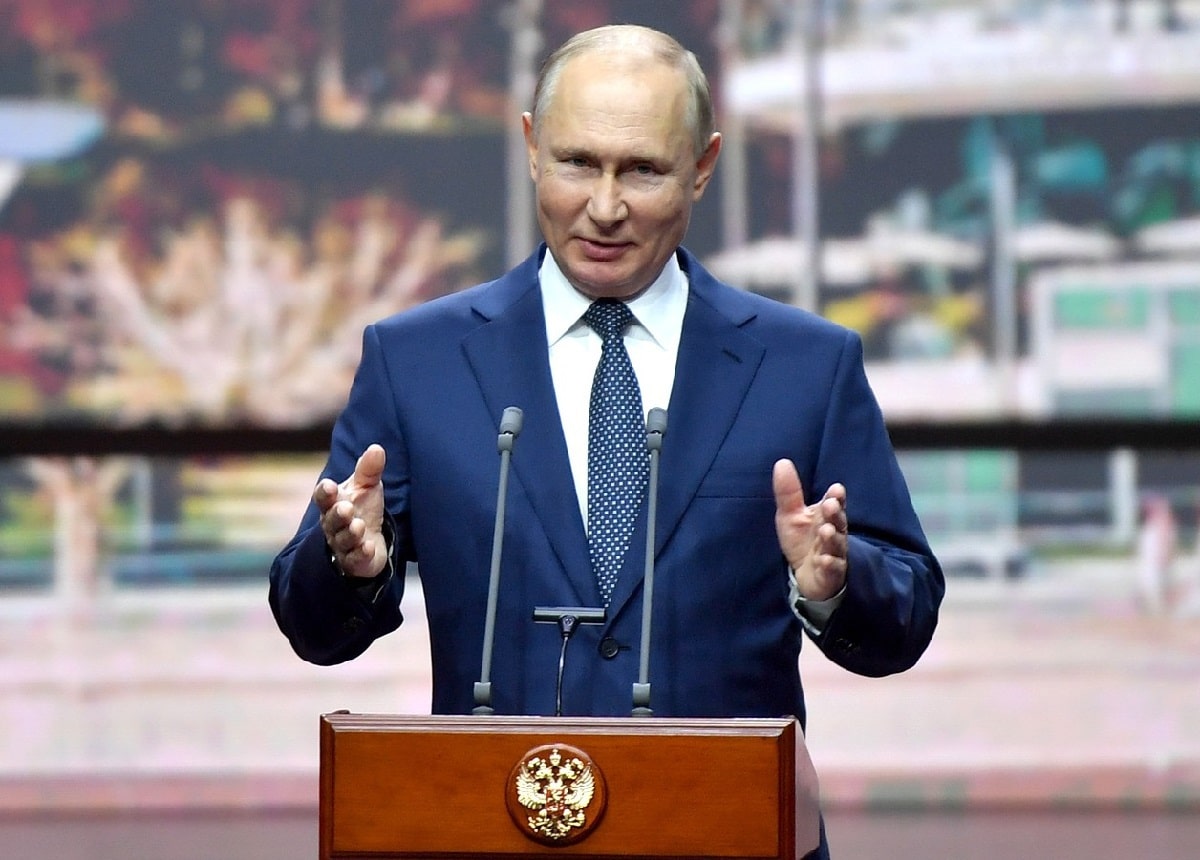Russia’s oligarchs appear to be increasingly critical of Vladimir Putin and his war against Ukraine.
Another recording of an alleged telephone conversation between two businessmen, Roman Trotsenko and Nikolai Matushevsky, has recently appeared online.
Like an earlier recording from March between two oligarchs who slammed the Kremlin, this recording pulls no punches and has Trotsenko apparently say the following:
Unfortunately, Russia, which we love so sincerely, has ended up in the clutches of some scumbags…. This can’t end well, it will end in hell…. People will kill each other on the streets of Moscow…. How can a country live and develop, where the only ideology is making money and one group of people holding power? There is no concept of “what’s next,” They will die … at some point and leave nothing behind. It will simply be a scorched desert.
These are strong words that do, in fact, accurately assess the dead end into which Putin and his comrades have maneuvered the country. And they are deeply insulting to Russia’s progressively weakening strongman.
Naturally, Trotsenko and Matushevsky deny having had this seditious conversation. However, the source of the recording, the Sistema research project affiliated with Radio Liberty, believes there are good reasons to believe in the recording’s authenticity.
If the conversation really took place, then it clearly and obviously suggests that Putin has lost the support of a significant portion of the Russian business community.
Trotsenko and Matushevsky, like the oligarchs from the March tape recording, may not be sharpening their knives for the final assault on the Bastille. Still, their disillusionment with and rejection of Putin does mean that Putin cannot rely on them and their class to save him, if and when his regime comes under attack from within.
More importantly, the only agency within Russia with the technical capacity to record—or falsify—both conversations is the secret police, the FSB, which is, according to many Russian analysts, at loggerheads with Putin for his mishandling of the war and for his refusal to take the blame for the impending systemic collapse. Instead, naturally enough, Putin blames the FSB—as well as the General Staff, for his bullheaded incompetence.
Seen in this light, it makes little difference whether both recordings are genuine or not. The important point is that the FSB either disseminated or manufactured them with a specific purpose in mind: to embarrass Putin and to remind him that the FSB has long arms that are capable of much more than mere embarrassment.
Will Putin take the hint and leave? Of course not. But his proneness to strategic miscalculations can only increase from the pressure of watching the trigger-happy FSB over his shoulder. If a third such conversation appears online soon, we’ll know that the tape recording is on the wall for Putin…
MORE: The F-35 Now Comes in Beast Mode
MORE: Why the U.S. Navy Tried to Sink Their Own Aircraft Carrier
Dr. Alexander Motyl is a professor of political science at Rutgers-Newark. A specialist on Ukraine, Russia, and the USSR, and on nationalism, revolutions, empires, and theory, he is the author of 10 books of nonfiction, including Pidsumky imperii (2009); Puti imperii (2004); Imperial Ends: The Decay, Collapse, and Revival of Empires (2001); Revolutions, Nations, Empires: Conceptual Limits and Theoretical Possibilities (1999); Dilemmas of Independence: Ukraine after Totalitarianism (1993); and The Turn to the Right: The Ideological Origins and Development of Ukrainian Nationalism, 1919–1929 (1980); the editor of 15 volumes, including The Encyclopedia of Nationalism (2000) and The Holodomor Reader (2012); and a contributor of dozens of articles to academic and policy journals, newspaper op-ed pages, and magazines. He also has a weekly blog, “Ukraine’s Orange Blues.” Motyl is a 19FortyFive Contributing Editor.

